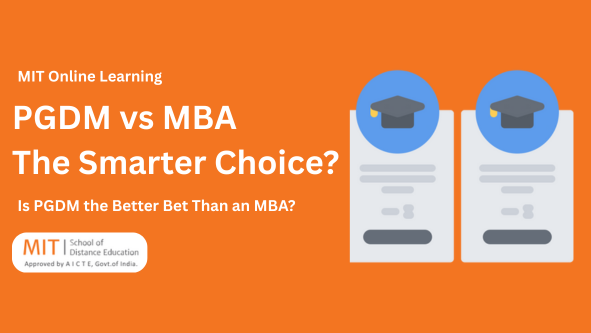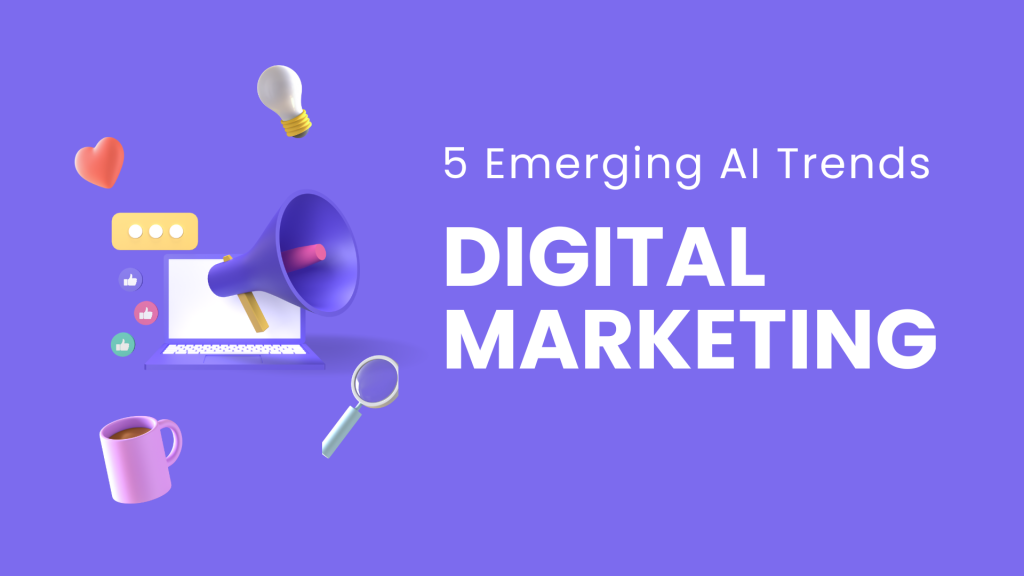
Table of Contents
1. Introduction
2. Understanding the Basics: PGDM vs MBA
3. What Are the Real Advantages of PGDM? Updated Curriculum
3.1 Industry Integration
3.2 Skill Development
3.3 Placement Focus
3.4 Flexible Learning Formats
4. But Are There Any Drawbacks?
5. Who Should Choose PGDM?
6. The PGDM Edge at MITSDE
Introduction
Every year thousands of graduates weigh the same question: MBA or PGDM— which will fast‑track my career? The choice feels confusing because both promise management know‑how, placement support, and a bigger pay cheque. Yet your decision can shape the next decade of your professional life. This blog unpacks the pros and cons, helping you decide whether a PGDM—perhaps a Distance PGDM MITSDE option—offers a better fit than a traditional MBA.

Understanding the Basics: PGDM vs MBA
A PGDM (Post Graduate Diploma in Management) is delivered by autonomous institutes that are approved by the All India Council for Technical Education (AICTE). Because these institutes operate outside the university system, they can refresh syllabi quickly and partner directly with industry. In contrast, an MBA (Master of Business Administration) is a degree granted by a university and regulated by the University Grants Commission (UGC).
What Are the Real Advantages of PGDM?Updated Curriculum
Autonomous status lets institutes add modules on AI, Big‑Data analytics, ESG reporting, or fintech the moment employers start asking for them. Recent course outlines at top schools include blockchain supply‑chain labs and sustainability analytics—topics still absent from many public‑university MBAs.
Industry Integration
PGDM colleges host live consulting projects, hackathons, and mentorship days where CEOs critique student ideas. You finish with a portfolio of real business problems solved, not just classroom grades.
Skill Development
Curricula devote explicit credits to leadership communication, conflict management, and data storytelling—soft and hard skills recruiters say MBAs sometimes lack.
Placement Focus
Because companies help design the modules, PGDM batches often report quicker and higher-value offers. Private‑sector firms prioritise graduates who can “hit the ground running”, and PGDMs market exactly that brand promise.
Flexible Learning Formats
If you cannot quit your job, the PGDM course from MITSDE or another top PGDM college’s online programme lets you study from anywhere with weekend live sessions, recorded lectures, and digital exams.

But Are There Any Drawbacks?
- Diploma, not Degree: Government and academic employers sometimes prefer an MBA’s formal “degree” status, especially for PhD entry.
- Fee Variation: Private PGDM institutes may charge more than some public‑university MBAs.
- Regulatory Recognition Abroad: While most global companies recognise top Indian PGDMs, certain foreign credential evaluators still ask for university degrees.
Balancing these cons against the flexibility and industry exposure of a PGDM is key.
Who Should Choose PGDM?
- Practical Learners: If you enjoy case studies, simulations, and learning by doing, PGDM’s experiential model will suit you.
- Private‑Sector Aspirants: Corporates in tech, FMCG, BFSI, and consulting often state a preference for PGDM graduates because of their updated tool‑kits.
- Future Entrepreneurs: Live industry projects and start‑up incubators embedded in PGDM campuses provide a safer sandbox for testing business ideas.
- Flexibility Seekers: An MIT SDE PGDM course online allows you to earn while you learn, making it ideal for MIT SDE PGDM for mothers or parents returning to work.
- Dual‑Specialisation Fans: Many PGDMs let you blend, say, Analytics with Marketing or Operations with Finance—mixes rare in university regulations.
The PGDM Edge at MITSDE
The PGDM course from MITSDE offers AICTE approval, virtual live lectures, and one‑to‑one mentor calls. Students can opt for electives in Digital Marketing, Supply‑Chain Analytics, or FinTech without waiting years for a syllabus revision. Because the programme runs fully online, it meets the needs of busy interns and junior executives alike. If you are scouting the Best online PGDM in India, MITSDE’s combination of accreditation, cost‑effective fees, and placement webinars puts it high on any shortlist.
FAQ’S
1. How many MBA courses are there in India?
There are over 30 specializations offered in MBA programs across India. These include core specializations like Finance, Marketing, and Human Resource Management, as well as niche fields such as Business Analytics, Healthcare Management, and Supply Chain Management.
2. What are the different types of MBA courses available in India?
There are several types of MBA programs in India based on mode of delivery and target audience:
Full-Time MBA (2 years)
Part-Time MBA
Executive MBA (EMBA) – for working professionals with experience
Online MBA
Distance MBA
Integrated MBA (5-year program after 12th)
One-Year MBA – intensive programs, often for professionals
3. How long is the MBA course in India?
The duration of an MBA course in India typically ranges from:
2 years for a full-time MBA
1 year for Executive or accelerated MBA programs
2–3 years for part-time and distance/online MBAs, depending on the flexibility of the program
4. What MBA courses are available in India?
Some of the popular MBA specializations available in India include:
MBA in Finance
MBA in Marketing
MBA in Human Resource Management (HRM)
MBA in Operations Management
MBA in Information Technology
MBA in Business Analytics
MBA in International Business
MBA in Supply Chain Management
MBA in Entrepreneurship
MBA in Healthcare and Hospital Management
5. When did the MBA course start in India?
The first MBA program in India was introduced in 1953 by the Indian Institute of Social Welfare and Business Management (IISWBM), Kolkata. It is one of the oldest management institutes in Asia.
6. Which MBA course is considered the best in India?
There is no single “best” course—it depends on your career goals. However, some of the most highly regarded MBA specializations in India are:
Finance
Marketing
Business Analytics
Operations Management
Strategy and Consulting
Top institutions like IIM Ahmedabad, IIM Bangalore, IIM Calcutta, and ISB Hyderabad offer these with strong placement records.
7. Which MBA courses are in high demand in India?
The most in-demand MBA specializations in India (as of 2025 trends) include:
MBA in Business Analytics & Data Science
MBA in Finance
MBA in Digital Marketing
MBA in Operations & Supply Chain
MBA in IT/Systems Management
MBA in International Business
Conclusion
So, should you choose PGDM over MBA? If you crave a curriculum that evolves with industry trends, prefer hands‑on learning, and want the option to study through a Distance PGDM MITSDE pathway, the answer is a confident “yes”.. In short, PGDM is trendier, more industry‑relevant, and, through platforms like MIT SDE PGDM course online, accessible from anywhere. The next step is yours: evaluate your goals, compare curricula, and register for the programme that aligns with your career vision.


